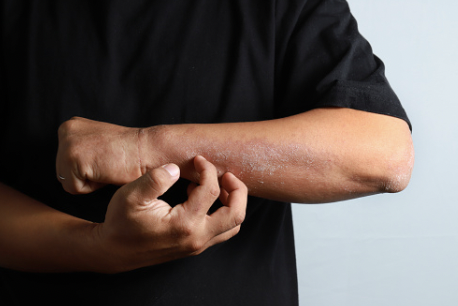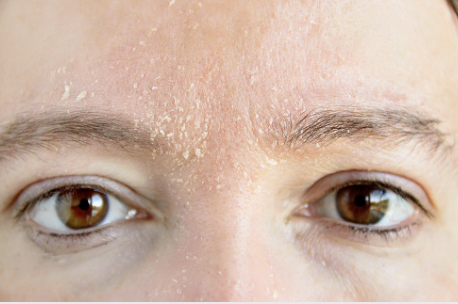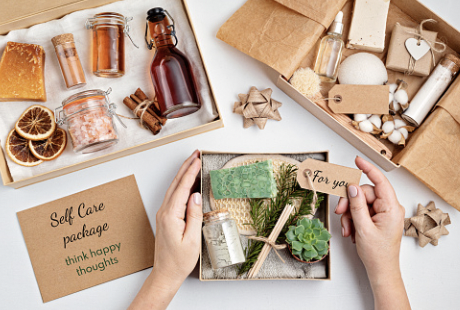Your Winter Skincare Guide
Here's how to safeguard mature skin during winters
Winters could be the best season for travelling, eating loads of fresh, green veggies, decking up for weddings and of course, soaking in the festive spirit of Christmas and New Year. However, the chilly months of December and January could be tough on your skin, especially if you’re 50 plus. Ageing and winter skin are not too favourable for each other and can result in skin issues among older adults, both men and women.
Skin issues that older adults should be cautious of during winter
Dr Shireen Furtado, Consultant, Medical & Cosmetic Dermatology at Aster CMI Hospital, says, “With age, the skin gets thin and produces less oil, thus making it susceptible to dryness and fragility. During wintertime, the already dry weather causes a condition called xerotic eczema.
What is Xerotic Eczema?

Commonly referred to as ‘Winter Itch’, Xerotic Eczema is caused due to extreme dryness of skin during the cold months of winter when the wind becomes harsh for the skin, especially that of older adults. Why? Because the activity of the sebaceous and sweat glands decreases as one ages and it becomes difficult for mature skin to retain sufficient moisture.
This could be caused due to Xerosis or abnormally dry skin, Zinc deficiency, Hypothyroidism, certain retinoids (a group of compounds having effects in the body like those of Vitamin A) and diuretics (type of drug that causes the kidneys to make more urine).
In case you’re using indoor heating during winters, you must be extra careful as the dry ambient indoor air caused due to the heating can provoke a flare-up among those already prone to Eczema.
Some of the common signs of Xerotic Eczema include lesions along the legs, a patchy venous appearance, a hard, rough texture in affected areas, small, crusty or dry scales lining the skin and more.
Preventing Xerotic Eczema
Did you know that shaving, your woollens, dish cleaners, ingredients in certain moisturisers and even fragrant soaps can enhance Eczema? Hence, it is important to avoid skin irritants that can cause a flare-up. Use mild soaps instead of harsher deodorant ones, bathe in warm water for not more than 10 to 15 minutes and do not stay in hot water for a prolonged period, moisturise daily with lotions having camphor and install a home humidifier to prevent your skin from becoming too dry during winter to avoid Eczema.
Skin Dryness And Wrinkling Among Elderly Women

Since women lose the protection of oestrogen post-menopause, their skin loses collagen faster and skin wrinkling and dryness is more, says Dr Furtado. The dryness can be experienced in the body, hands and lips.
Body Dryness: During the winter months, the body skin may become dry and can cause a lot of itching and discomfort among older adults. They may end up scratching the skin hard resulting in redness and irritation. At times, the scratching can be so hard that it can break the skin and open it up for infection and wounds which may take time to heal.
Dry Hands: Dry hands are most common during winters and pretty difficult to manage. Mostly at the time of a pandemic when the hands get washed frequently to avoid virus contraction. Dry hands get aggravated due to extensive washing with harsh, fragrant soaps.
Dry Lips: Chapped lips are not just uncomfortable but could be painful as well when they develop cracks and sores. Frequent licking of lips or otherwise wetting them can make it even worse.
Tips to tackle mature skin during winter
Dr Swathi Shivakumar, Consultant - Dermatologist, Aster RV Hospital comes up with simple tips that can help older adults prevent dryness and tackle winter skin issues.

- Use extra virgin coconut oil and apply on the body before bath
- Take a quick bath with lukewarm water
- Generously use moisturiser after bath
- Reapply moisturiser at bedtime
- Use soothing oils that are fragrance-free and light before bathing. Make sure to bathe carefully and avoid slippage after applying oil.
- Using a good sunscreen during the day with a minimum SPF of 30 can prevent sun-induced skin ageing.
- Use face creams containing retinol at night to delay fine lines and other signs of ageing.
- Moisturise exceptionally dry areas like feet, elbows and knees
- Wash hands in lukewarm water using fragrance-free and dye-free soap and pat them dry with a towel.
- Use a light lotion after you wash your hands.
- Use a thicker cream and apply it to your hands before bedtime.
- You can try wearing light cotton gloves while sleeping as they infuse the skin with moisture and keep your hands hydrated.
- Apply a good-quality lip balm throughout the day, especially after eating.
- Cover the lower part of the face with a scarf or mask while stepping out to keep the lips moisturised.
- Keep yourself hydrated even though it is cold outside. Do not cut down on the number of glasses of water you take. Unless advised by your doctor to drink less for any condition, having eight glasses of water in a day is important.
These simple ways can help you keep your skin hydrated during the winters, lessen your discomfort and amp up your mood to enjoy the yearly chills.
Comments
You may like to read:

Health and wellness
Five Lifestyle Changes To Ease Bladder Control

jessica smith
5 mins read

Health and wellness
Five things to keep in mind when considering organ donation

sunayana singh, ceo of organ india, an initiative of the parashar foundation
3 mins read

Health and wellness
How NURA Uses AI-Enabled Screening to make a difference in Preventive Healthcare

Silver Talkies
4 mins read

Post a comment